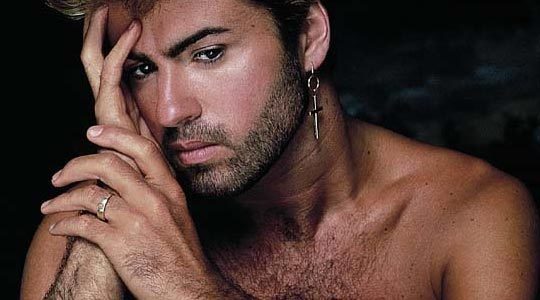‘George Michael was an LGBT icon whose real heroism lay in his vulnerability’

There can be no doubt that George Michael was a towering talent. He had a beautifully expressive voice, was an exceptionally gifted songwriter, and managed to capture the spirit of his time in a way that only the greatest icons of popular culture can do.
But he was also a proud gay man – and a hero to many LGBT+ people.
It might sound strange to identify as a hero a man who was so clearly troubled, or one who only came out as gay in 1998 when he was arrested by an undercover policeman for ‘engaging in a lewd act’ in a public toilet in Los Angeles. But it’s what he did in the period directly after this that made George Michael a hero.
Rather than allowing himself to be cowed or to apologise for his behaviour – which is what many people at the time expected – George’s response was to unleash the PR blitz that was ‘Outside’. The lyrics of the song celebrate the delights of going ‘back to nature’ for outdoor sex, poke fun at the singer’s time ‘servicing the community’ and include the joyous confession that ‘Yes, I’ve been bad!’
The hilarious video intercuts images of couples having sex in public with footage of George dressed as a policeman performing the song in a public toilet that turns into a gay nightclub, complete with mirrorball. Even the title of his accompanying greatest hits album, Ladies and Gentlemen, was a wry nod to the site of his supposed disgrace. It all added up to a sensational and shameless way of claiming ownership of what had happened, with George publicly embracing his sexuality and hitting back at those who’d criticised his behaviour as shameful or immoral. It was a dazzlingly brave move and one that paved the way for pop stars such as Will Young and Sam Smith to be open about their sexuality in later decades.
Of course, part of me can’t help thinking it would have been better if George had come out earlier in his career – and through his own choice. But we mustn’t forget how different the world was in the 1980s and 1990s and how little information or understanding there was about being gay. We shouldn’t judge individuals who took a long time to come to terms with their sexuality or who might have balked at the idea of being a spokesperson for a minority group which at the time was widely despised.
We also mustn’t forget how few public figures dared to disclose their homosexuality in the Eighties and Nineties. George would have been under huge pressure to stay in the closet to protect his career and safeguard record sales. He also revealed in interviews after coming out that he hadn’t wanted to upset his mother; in those days gay men were demonised as “dirty” and “destined to die of Aids,” a condition which some people considered divine punishment for the transgression of being the way we were. Is it any wonder George wanted to protect his mother from this?
Unfortunately, much of George’s troubles in later life led many people to speculate that he wasn’t truly happy or was still working through certain issues; he had a problematic relationship with drugs and often displayed signs of an urge towards self-sabotage and even self-destruction. But for me, this is where his heroism truly lay. Because heroes can come in all shapes and sizes; yes, some of them can behave in a way that makes us want to emulate them but others can be flawed. And George was flawed – but he was flawed in a way that made us understand him and feel like he was one of us.
Because even today many gay men can spend years struggling to come to terms with their sexuality. Many of us can still have difficult relationships with our families, relationships which are sometimes complicated further when certain family members die, as George’s mother did in 1997. Many of us have lost loved ones to Aids-related illnesses, as George did when his partner Anselmo Feleppa died in 1993, a tragedy which inspired him to write the song ‘Jesus to a Child’ and much of the album Older.
Yes, life can be tough. And it can often lead us into depression or to try to obliterate some of our more painful emotions through drink, drugs or casual sex. After being outed in 1998, George was always honest about his struggles. And for years before this, the emotions he was feeling informed and inspired his music.
So OK, we might not necessarily be able to look up to him as any kind of role model to follow. But he gave us something that was arguably more important than that.
George Michael was one of us – and he was proud to identify as one of us. We understood his struggles and we empathised with him, just as we intuited through his music that he understood our struggles and empathised with us. And for that he will always be a true hero.
More stories:
12 famous faces who came out as LGBT in 2016
The LGBT stories that shaped the world in 2016 (Part 1)
